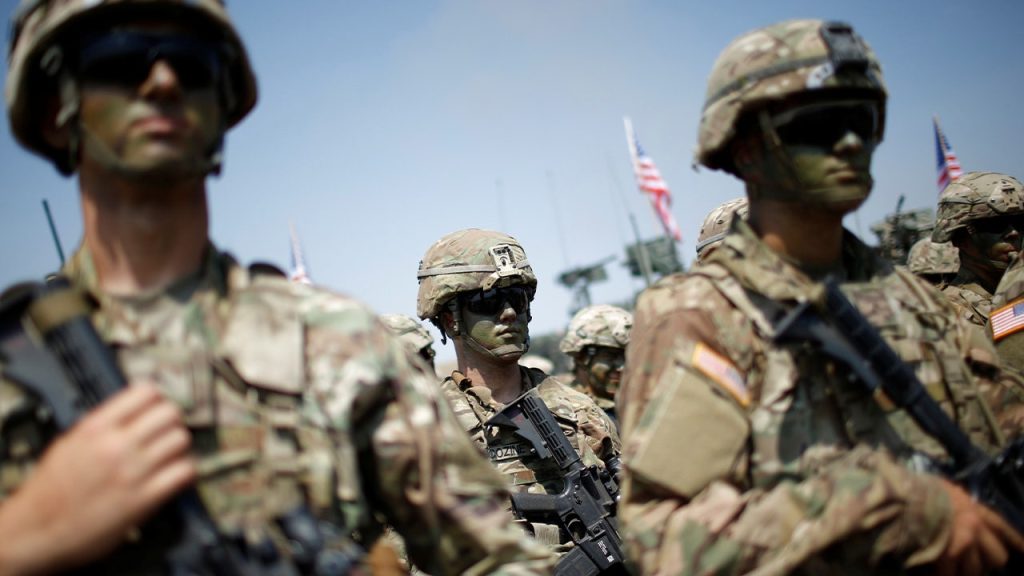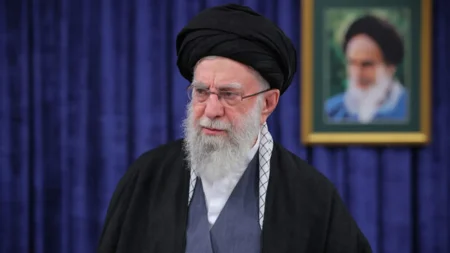A recent survey from the Ronald Reagan Institute reveals a strong consensus among Americans regarding the importance of foreign policy and national defense. Most respondents indicated that these topics are “somewhat” or “extremely” important to them, emphasizing a shared belief that the United States must maintain a prominent role on the global stage, bolstered by a robust military. This perspective is particularly relevant as the nation heads into a pivotal election, with looming uncertainties about the future of U.S. foreign relations amid escalating tensions with adversaries such as Russia, China, Iran, and North Korea. The survey underscores the uniformity in American attitudes towards defense and security issues despite differing political affiliations, pointing to a collective desire for proactive American leadership abroad.
The findings of the survey, which was conducted from November 8-14 with approximately 2,500 respondents, suggest that there has been a notable increase in support for U.S. international engagement. In fact, there has been a record rise of 15 percentage points since the previous year, with particularly strong support from younger individuals under 30, who reported a 32-point jump in their endorsement of proactive global military strategies. As concerns over adversarial alliances heighten, there is a prevailing belief that the U.S. must assert itself more vigorously in handling international conflicts, especially in East Asia, the Middle East, and Europe. This reflects a clear apprehension regarding the emerging coalition among countries like Russia, Iran, North Korea, and China, which many see as a significant cause for U.S. re-engagement on the world stage.
Gender differences were evident in the survey regarding confidence in the U.S. military’s capabilities. A majority of male respondents expressed optimism about the possibility of winning a war against China (59%), while female participants showed more skepticism (45%). Similar trends emerged regarding U.S. prospects against Russia, with 73% of men expressing confidence compared to 56% of women. Despite these disparities, there was a collective consensus that China ranks as the greatest threat to the U.S., while Russia is viewed as the chief enemy. This highlights an underlying concern about the effectiveness of American military prowess amid conflicting perspectives on international relationships and defense readiness.
Another critical insight from the survey is that a significant majority—85% of respondents—expressed concern over the collaboration between hostile nations like Russia, China, Iran, and North Korea. This alliance is increasingly viewed as a direct challenge to U.S. interests and security, particularly evident in ongoing conflicts such as the situation in Ukraine and tensions in the Middle East. With an overwhelming number of Americans signaling a desire for their government to take these threats seriously, it becomes evident that national security remains at the forefront of public discourse, despite the competing demands for attention on domestic issues like healthcare and social security.
Rachael Hoff, the Policy Director at the Ronald Reagan Institute, reflected on the survey results, indicating that while Americans prioritize domestic concerns, they do not wish to retreat from global engagement. They expect their government to balance domestic and international priorities, which rejects the notion of a growing isolationist sentiment in the country. Instead, the data suggests a clear demand for robust U.S. leadership from a position of strength, advocating for the principles of freedom and democracy on a global scale. This desire for a comprehensive approach underscores the complexity of American public opinion, as citizens expect their leaders to tackle both domestic and foreign challenges simultaneously.
Ultimately, the survey highlights a strong consensus that transcends partisan lines, revealing a shared commitment among Americans—regardless of their political affiliations—to uphold international responsibilities and maintain a formidable military presence. The impending changes in the U.S. leadership, driven by the upcoming presidential election, will likely shape how the nation navigates its foreign policy in an increasingly complex geopolitical landscape. With public opinion solidly leaning toward proactive engagement with global threats, leaders will need to balance both the aspirations of the electorate and the immediate challenges posed by adversaries in order to meet the expectations of a security-conscious American populace.















